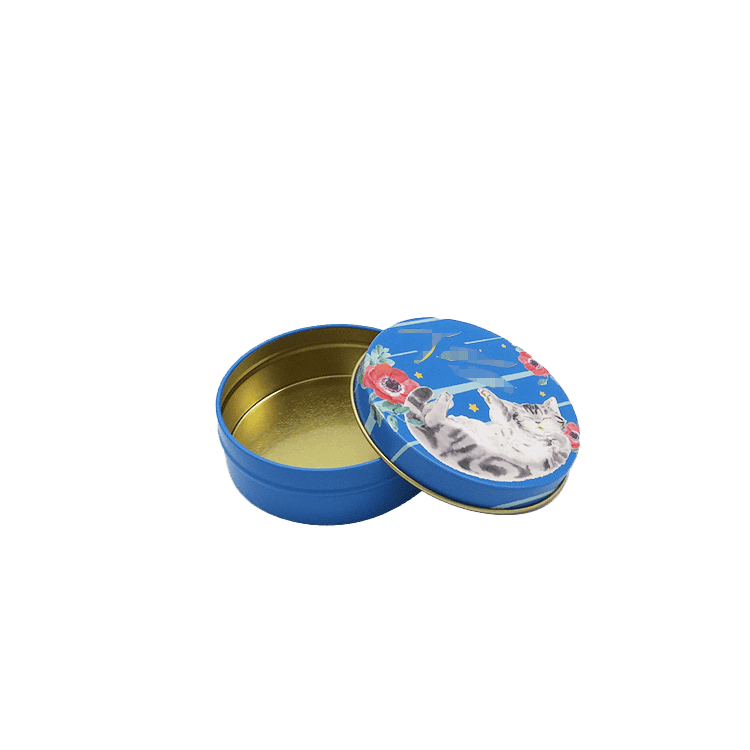
Creating custom mini tins involves several steps, from design to manufacturing, and typically requires working with an Original Equipment Manufacturer (OEM) that specializes in tin production. Here is a suggested process for OEM custom mini tin production:
1. **Define Purpose and Requirements**:
- Determine the intended use of the mini tins (e.g., packaging for mints, candies, lip balms, tea, etc.).
- Establish the size, shape, and capacity required.
2. **Design and Customization**:
- Create or commission a unique design that will be printed on the tins. This might include artwork, branding, logos, and text.
- Decide on the type of finish (matte, glossy, etc.) and colors.
- Consider any additional features such as embossing, debossing, or special closures.
3. **Choose Materials and Coatings**:
- Select the appropriate tinplate thickness and grade.
- Choose coatings for both the interior and exterior to ensure product safety and tin longevity.
4. **Prototype Development**:
- Work with the OEM to develop a prototype of the tin for evaluation.
- Test the prototype for functionality, safety, and appeal.
- Make any necessary adjustments to the design or materials based on feedback.
5. **Production Specifications**:
- Finalize all specifications, including dimensions, materials, design, and quantity.
- Discuss and decide on the production timeline and deadlines.
- Agree on quality control procedures to ensure the final product meets your standards.

6. **Manufacturing**:
- The OEM will produce the custom mini tins utilizing their tooling, fabrication, and assembly processes.
- Printing and varnishing will be applied as per design requirements.
7. **Quality Assurance**:
- Implement quality checks throughout the manufacturing process to ensure consistency and quality.
- Perform a final inspection of the completed batch.
8. **Packaging and Shipping**:
- Decide on the packaging method for the tins to ensure they are protected during transit.
- Coordinate with the OEM on the logistics for shipping the finished products to your location or distribution centers.
9. **Regulatory Compliance**:
- Ensure the tins meet any necessary regulatory requirements, especially if they will be used for food or pharmaceuticals.
10. **Post-Production Support**:
- Discuss with the OEM any post-production services they offer, such as warehousing, fulfillment, and restocking.
11. **Marketing and Distribution**:
- Plan the marketing strategy for the tins, if they are part of a product being sold.
- Arrange for distribution channels to get the mini tins to retailers or direct to customers.
Throughout this process, communication with your OEM is key to achieving the desired outcome. Ensure that you have a clear contract in place that outlines all deliverables, timelines, and costs associated with the production of your custom mini tins.